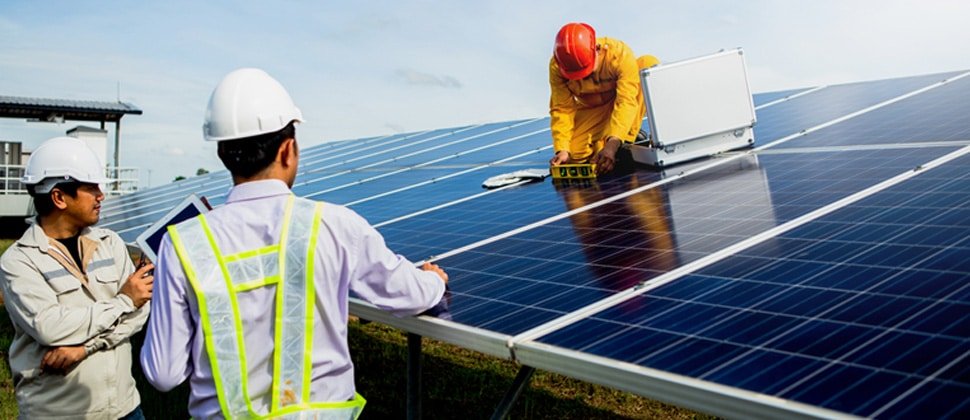August 19, 2022

As energy costs continue to rise, you may be in search of ways to reduce your energy bill. As one of the best and most rapidly advancing forms of renewable energy, solar panels are often favoured for various reasons. In this article, we’ll be delving into everything you need to know about solar panels and how they can help reduce your energy bill.
If you’re keen to achieve savings on your energy bill and opt for an environmentally friendly energy option, read on.
Solar panels, also knowns as photovoltaics (PV), use photovoltaic cells to convert energy captured from the sun into electricity. You’ll also have an inverter installed when your solar panels are fitted. The purpose of the inverter is to convert the electricity generated from direct current (DC) to an alternating current (AC), the type of electricity most home appliances use.
If you’re concerned about the great British weather, worry not. Thankfully, solar panels don’t require direct sunlight to work. So, you can expect your set-up to generate electricity even on cloudy days.
One of the most common questions is whether solar panels can generate enough energy to power a house. The answer largely depends on your household’s energy consumption and the system you invest in. For example, if your household has a high energy consumption and you opt for a smaller-sized system, you may find that you’ll need to top up from the grid for that extra washing machine load or power multiple fridge freezers.
However, if you were to buy a system that meets your household’s energy needs, the amount of energy needed from the grid would be greatly reduced, and energy bills would reduce dramatically. Smaller size systems can still help to reduce the energy needed to be purchased from the grid and help reduce energy bills, albeit less than systems that produce more energy.
So, in short, your best bet is to speak to a solar expert who can recommend the right set-up based on your household consumption.
In addition to reducing your energy costs each year, there a plenty of benefits to installing solar panels, such as:
Generally speaking, you can expect to save around £300 per year on your energy bill by switching to solar power. If the wholesale price of energy increases by 77% as predicted in October 2022, then you could certainly see some bigger savings. But, of course, this figure varies depending on location, household usage and more.
Energy saving trust is an excellent resource to estimate how much solar panels will reduce your energy bill. The energy-saving trust offers a solar energy calculator that estimates energy bill saving and financial payments you may receive by installing solar panels.
The tool considers variables such as location, your roof slope, direction and shading and the hours you are typically at home to provide an estimate.
Thanks to the Smart Export Guarantee (SEG) scheme – launched in 2020 – you can earn money for any excess renewable energy your solar set-up generates by exporting back to the National Grid in exchange for payment.
Any licensed energy suppliers with 150,000+ customers must provide at least one Smart Export Guarantee tariff. Suppliers with less than 150,000 customers can offer a tariff voluntarily.
To be eligible for the scheme, you must meet the following criteria;
In April 2022, the UK Government announced that the 5% VAT on solar panels would be scrapped until 2027. To support households in reducing their energy bills and boosting energy efficiency, the government reduced the 5% VAT across all energy-saving measures.
The new VAT-free period also coincides with the permanent removal of all specific eligibility criteria previously attached to the reduced rate of 5%.
The VAT-free period is set to end in March 2027, and the VAT rate on energy-saving measures will return to 5%.
